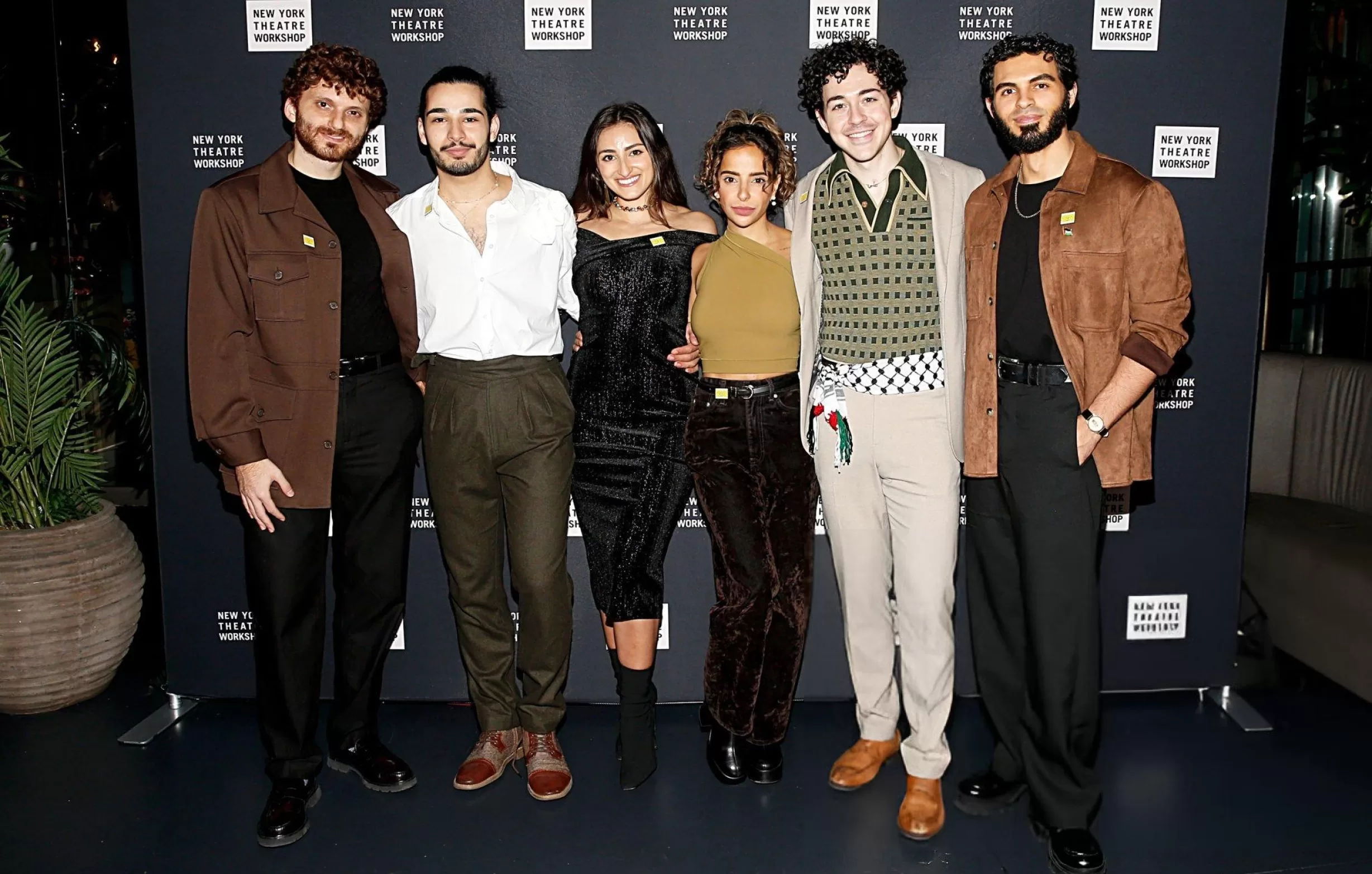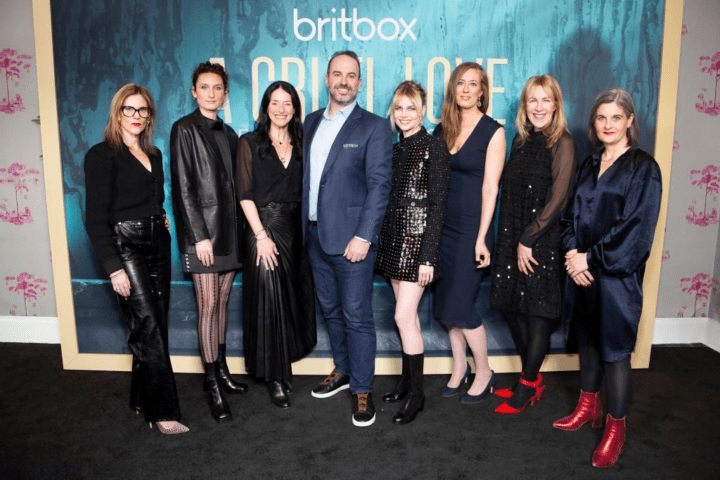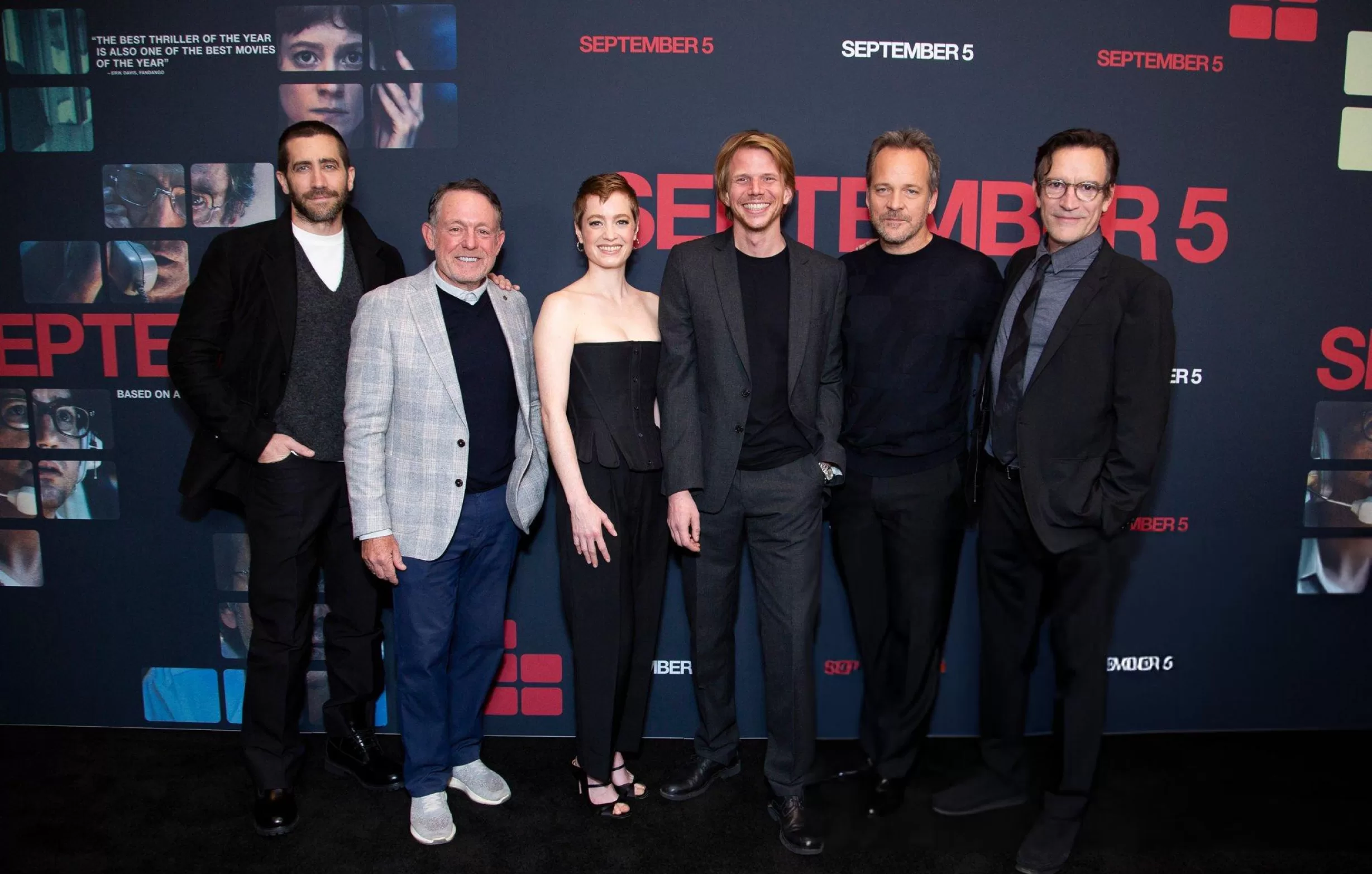On October 27, 2024, the New York Theatre Workshop (NYTW) came alive with the energy and passion of one of the year’s most anticipated theatrical productions: We Live in Cairo. This poignant musical, directed by Taibi Magar and choreographed by Ann Yee, dives into the spirit and resilience of Egyptian youth during the Arab Spring, exploring themes of freedom, sacrifice, and revolution. Inspired by real events, We Live in Cairo traces the lives of six young Egyptian activists who challenge a repressive regime with art, music, and unyielding hope.
New York Debut of We Live in Cairo
The debut performance of We Live in Cairo was nothing short of a cultural event, attracting a host of celebrity attendees and influential figures in the world of theater. Notable personalities such as Lin-Manuel Miranda, Phylicia Rashad, and Rami Malek graced the evening with their presence, each expressing admiration for the musical’s relevance and emotional depth. Their enthusiastic responses underscore the production’s powerful resonance with contemporary audiences, bridging cultural divides and emphasizing the universal language of human rights and freedom.
In a moment that captured the hearts of everyone present, the cast of We Live in Cairo performed an impromptu rendition of “Genealogy of Revolution” on the street outside NYTW. This spontaneous performance gathered a large crowd of onlookers and fans, many of whom had eagerly followed the musical’s journey from conception to stage. Social media buzzed with reactions, as attendees shared their awe and appreciation for the cast’s dedication and the musical’s heartfelt message. Fans praised the show for its authentic portrayal of youth activism, noting how it brought a critical period in history to life through powerful performances and evocative storytelling.
We Live in Cairo speaks to the transformative power of art in times of crisis. Through its vivid storytelling and complex characters, the musical reflects the significance of creative expression as a means of resistance. Each character’s journey highlights the different ways art can inspire action, unite communities, and challenge the status quo.
The musical’s emphasis on youth-led activism resonates deeply in today’s climate, as young people worldwide continue to advocate for change. By highlighting the stories of individuals who risked everything for a cause, We Live in Cairo encourages audiences to reflect on their role in shaping the future. It stands as a testament to the enduring spirit of those who dare to envision a better world, despite the challenges and sacrifices that such visions often demand.
We Live in Cairo Summary
We Live in Cairo follows six courageous students from the American University in Cairo as they navigate the turbulence of the Arab Spring protests. Beginning with the fervor of Tahrir Square, the musical delves into the personal lives and political trials these young revolutionaries face in their quest for freedom. This compelling narrative weaves together themes of love, loss, and resilience, as each character contributes uniquely to the movement.
Starcast of We live in Cairo
Amir (Ali Louis Bourzgui): As the group’s passionate leader, Amir embodies the spirit of the revolution. Using his artistic talents as a rallying call, he becomes a voice for the people. Ali Louis Bourzgui’s powerful portrayal brings to life Amir’s transition from an idealistic student to a hardened revolutionary, capturing the essence of his fight against tyranny. Hassan (Drew Elhamalawy): A tech-savvy strategist, Hassan harnesses the power of social media to amplify their cause. Drew Elhamalawy’s performance highlights the impact of technology on modern activism, as Hassan juggles his online influence with the real-life consequences of rebellion. His character speaks to the role of digital tools in driving movements for change. Karim (John El-Jor): Karim, the muralist, uses his art to communicate messages of hope and defiance. John El-Jor’s interpretation of Karim showcases a character deeply committed to visually representing the struggles of his people, capturing the importance of art in galvanizing support and fueling resistance.
Layla (Nadina Hassan): A photographer and documentarian, Layla bears witness to the harsh realities of life in Cairo. Nadina Hassan’s portrayal adds emotional depth, depicting the role of journalism in exposing truth and sparking dialogue. Through Layla’s lens, the world witnesses the revolution’s impacts on the ground. Hany (Michael Khalid Karadsheh) As a musician, Hany’s songs provide a soundtrack to the group’s struggle. Michael Khalid Karadsheh’s performance resonates deeply, with Hany’s melodies capturing both the sorrows and joys of revolutionary life. His music serves as a unifying force, strengthening the group’s resolve. Fadwa (Rotana Tarabzouni): Strong-willed and unbreakable, Fadwa represents the strength of women in the revolution. Played by Rotana Tarabzouni, her character exudes courage, resilience, and dedication to the cause. Fadwa’s story is a tribute to the women who stood at the forefront of the revolution, often facing immense personal risk.
We live in Cairo Review
Critics have been quick to recognize the excellence of We Live in Cairo, with praise highlighting its innovative visual design and emotionally charged choreography. The musical’s creative use of projections and dynamic stage transitions immerses audiences in the gritty, vibrant world of Cairo’s streets and Tahrir Square. Reviewers commend how these artistic choices reinforce the narrative, emphasizing the intersection of personal and political struggles within the revolution.
The production has been celebrated for its authentic character development and emotional depth, with critics noting how each actor delivers a nuanced performance that contributes to the larger theme of resilience against oppression. We Live in Cairo has been hailed as a “must-see” for anyone interested in the power of art as a catalyst for social change, drawing comparisons to other politically charged works that have graced the Off-Broadway scene.
As the curtain fell on the debut of We Live in Cairo, it was evident that this production had struck a powerful chord with all who attended. The musical’s exploration of love, loss, and sacrifice in the pursuit of freedom is a poignant reminder of the challenges faced by those who stand against oppression. With its talented cast, visionary direction, and profound message, We Live in Cairo promises to leave a lasting legacy at the New York Theatre Workshop and beyond.
By bringing the voices of the Arab Spring to the stage, this remarkable musical has created a space for reflection, empathy, and understanding, uniting audiences in a shared celebration of resilience and the pursuit of justice.





